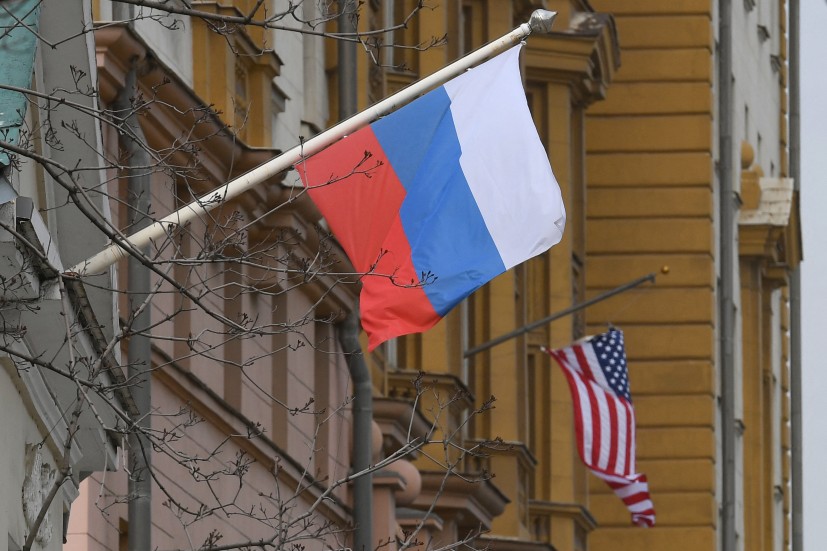Defense & National Security — US, Japan prep for possible Taiwan conflict
It’s Thursday, welcome to Overnight Defense & National Security, your nightly guide to the latest developments at the Pentagon, on Capitol Hill and beyond. Subscribe here: digital-staging.thehill.com/newsletter-signup.
The U.S. and Japanese militaries have reportedly drafted a plan for a joint operation if an emergency with Taiwan arises.
More on that, plus the pending resumption of Iran nuclear talks and the seven staff members who traveled with the Pentagon’s deputy chief testing positive for COVID-19.
For The Hill, I’m Jordan Williams. Write me with tips at jwilliams@digital-staging.thehill.com
Let’s get to it.
Nations plan for potential Taiwan emergency

The U.S. and Japanese militaries have made a draft plan for a joint operation should an emergency with Taiwan arise, Japan’s Kyodo news agency reported Thursday.
Under the draft plan, the U.S. Marine Corps would deploy troops to and set up temporary bases on the Nansei island chain, an archipelago of Japan that stretches toward Taiwan, at the first sign of a Taiwan emergency, Kyodo said.
Japanese armed forces, meanwhile, would provide logistical support with ammunition and fuel supplies.
Increasing tensions: China in the past two years has increased its aggression toward Taiwan by sending hundreds of military aircraft into the air defense identification zone of the island it sees as a rogue state.
Taiwan, however, maintains it is a sovereign country separate from Beijing and said it is preparing for potential invasion that could come in the next several years, though it wants peace.
The tensions have grown so worrisome that the U.S. has called for China “to cease its military, diplomatic, and economic pressure and coercion against Taiwan,” and said Washington will assist Taipei “in maintaining a sufficient self-defense capability.”
An upcoming meeting: Secretary of State Antony Blinken and Defense Secretary Lloyd Austin will host their Japanese counterparts for a “2+2 dialogue” on Jan. 7, during which the draft plan is likely to be discussed.
THe alliance with Japan is viewed as vital to counter China’s ambitions, and the last 2+2 meeting held in March served as a strong indicator that allies in Asia and the Pacific were crucial to President Biden’s foreign policy agenda.
Officials welcome steps toward diplomacy

The Biden administration is welcoming positive, albeit modest, steps toward diplomacy with Russia amid heightened tensions over whether Moscow will launch a military offensive against Ukraine.
A senior administration official on Thursday said recent comments by Russian Foreign Minister Sergey Lavrov acknowledging American concerns over Russia’s actions and demands signaled an openness to diplomatic talks expected to take place in January.
“Our approach is understood to the Russians in this regard,” the official said in a briefing with reporters. “That is what diplomacy is, that’s what a negotiation is, and that’s what we plan to undertake.”
What’s next: The Biden administration plans to lock down a location and date for bilateral talks between Washington and Moscow in early January, the official said, as Washington, allies in NATO and Kyiv remain on high alert with nearly 200,000 Russian troops massing on Ukraine’s border.
“We are continuing to watch closely Russia’s alarming movement of forces and deployments along the border with Ukraine,” the official said.
Lavrov, in an interview with Russia’s state-controlled RT Television late Wednesday, said that Moscow stands ready to discuss American concerns.
“The Americans have said that they are ready to discuss some of the concerns we have put on paper, that our other concerns are unacceptable to them, and that they have their own concerns as well. We are ready to discuss them, but they have not yet presented them,” he said.
DEPUTY PENTAGON CHIEF STAFFERS TEST POSITIVE FOR COVID-19
Seven staffers who traveled with Deputy Secretary of State Kathleen Hicks last week tested positive for COVID-19, the Pentagon announced.
Pentagon press secretary John Kirby said in a statement that staff were tested at the conclusion of the trip “out of an abundance of caution.”
Hicks and members of her immediate personal staff have all tested negative for COVID-19, he added. The staff members who tested positive are quarantined, in keeping with guidelines from the Centers for Disease Control and Prevention (CDC).
Hick’s domestic travel: Hicks traveled to five states last week to meet with service members and military leaders at multiple military bases.
The deputy Pentagon chief visited the Selfridge Air National Guard Base in Michigan, then traveled to Colorado to visit the U.S. Northern Command, U.S. Space Command and the U.S. Space Force Space Training and Readiness Command.
Hicks also visited the U.S. Indo-Pacific Command in Hawaii, the Naval Amphibious Base Coronado in California and the U.S. Strategic Command in Nebraska.
WHAT WE’RE READING
- Last Afghan refugees leave temporary housing at Marine Corps Base Quantico
- Iran nuclear talks to restart next week
- One of the US military’s largest private landlords pleads guilty to fraud
- Biden signs bill punishing China for Uyghur abuses
- The Hill Opinion: In an era of evolving threats, the military needs diversity more than ever
- CNN: US intel and satellite images show Saudi Arabia is now building its own ballistic missiles with help of China
- The New York Times: U.S. considers warning Ukraine of a Russian invasion in real-time
That’s it for today. Check out The Hill’s defense and national security pages for the latest coverage. See you Monday.
Copyright 2024 Nexstar Media Inc. All rights reserved. This material may not be published, broadcast, rewritten, or redistributed..













